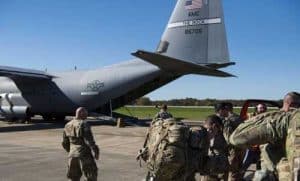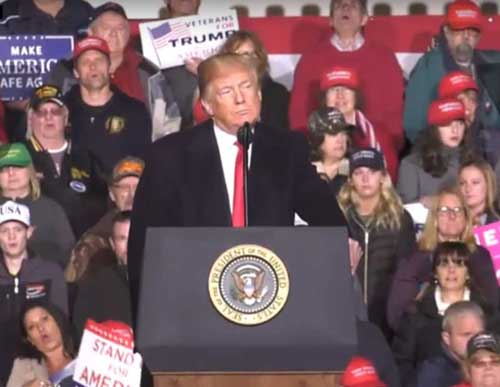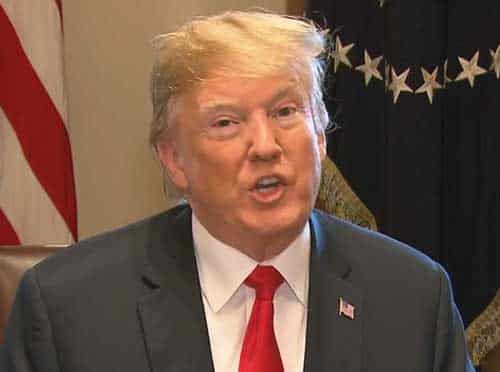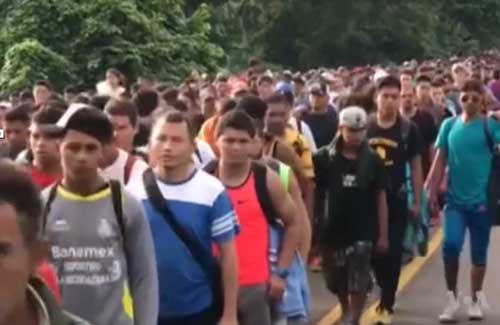
PENTAGON — President Donald Trump says as many as 15,000 U.S. troops could go to the Mexican border to stop caravans of Central American migrants, many of whom are seeking asylum, from crossing into the United States.
“It’s a dangerous group of people,” the president said of the migrants after earlier calling them “very bad thugs and gang members.”
But one woman who is from El Salvador and is part of the latest group headed north said she wants Trump to know that she and the others are not “delinquents.”
Looking for work
“We are not going over there to steal or cause harm to anyone. We want to work by using our humble hands, with sweat and earn a little bit of money. We pray to God that we make it there and find jobs,” she said.
Trump’s figure of 15,000 is far more than the roughly 5,200 active duty soldiers the Pentagon is sending to the border, along with the 2,100 National Guardsmen already there. U.S. Defense Department officials have told VOA that about 2,000 additional active duty troops will be placed on standby to help the active duty troops already assigned to the border.
This would make the total number of troops deployed to the U.S. southern border more than the number of Americans fighting terror groups in Iraq and Syria. About 14,000 U.S. troops are deployed in Afghanistan.
[content id=”79272″]
U.S. Defense Secretary Jim Mattis, speaking to reporters at the Pentagon, denied the deployment of active duty troops to the border is a political stunt to help Republicans in next week’s midterm elections.
“We don’t do stunts in this department,” Mattis said. “The support that we provide to the secretary for Homeland Security is practical support based on the request from the commissioner of customs and border police.”
The president also denied that his tough talk on immigration is nothing but a fear-mongering ploy as Republicans face the possibility of losing control of Congress to Democrats.
The U.S. troops assigned to help with border security are legally prohibited from engaging in domestic law enforcement, such as arresting migrants crossing the border.
Defense officials tell VOA that military personnel will be moving border patrol agents around, setting up razor wire fencing and building temporary housing facilities for border agents when needed.
A Pentagon official said some of the troops may be armed based on where they are sent along the border and what their jobs will be.
The main caravan of impoverished Central Americans is still in Mexico and more than 1,600 kilometers (995 miles) from the United States. It will be several weeks before they reach the U.S.-Mexico border.
Earlier Wednesday, Trump claimed in a tweet that the caravan included “very tough fighters” who “fought back hard and viciously” against Mexican police.
Trump was referring to reports Sunday that a group of migrants broke through a gate at the Guatemalan-Mexican border and fought with police. Several officers were hurt and one migrant was killed, but it is unclear how.
Trump has also criticized Mexico, saying Mexican soldiers “were unable, or unwilling to stop” the migrants. But White House spokeswoman Sarah Sanders told Fox News that Mexico has “stepped up in an unprecedented way” by stopping vehicles, forcing the migrants to walk and slowing their progress.
There are currently four separate caravans heading to the U.S. border, the original group that left from San Pedro Sula, Honduras, more than two weeks ago; the second caravan that pushed its way into Mexico from Guatemala earlier this week; and two new caravans that just started out from El Salvador.
“We are hard-working people and if we migrate there (the U.S.) we want to be treated like human beings,” one member of the El Salvador group said Wednesday.
Altogether, more than 7,000 migrants are moving toward the U.S. border, hoping to escape violence and find opportunities that do not exist for them at home.
But President Trump calls U.S. borders “sacred” and repeated his appeal Wednesday that anyone who wants to immigrate to the United States do so legally.
Carla is VOA’s Pentagon correspondent covering defense and international security issues. Her datelines include Ukraine, Turkey, Pakistan, Afghanistan, Iraq and Korea.
Source: VOA








